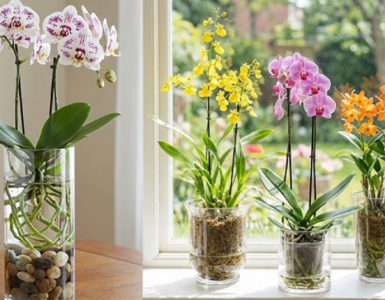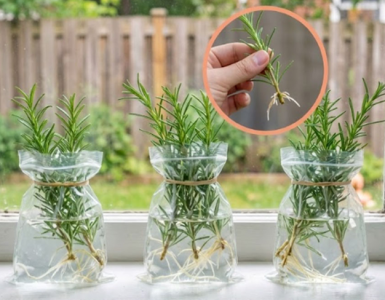Wild carrot (Daucus carota), also known as Queen Anne’s Lace, is a wild variety of the cultivated carrot. This plant is native to Europe and Asia but has naturalized in many parts of North America. With its delicate, lacy flowers and rich medicinal properties, wild carrot has been valued for centuries in herbal medicine. Below are its benefits and uses:
1.Promotes Digestive Health
Improves Digestion: Wild carrot seeds and roots stimulate digestion by promoting the production of digestive enzymes.
Relieves Bloating: Its carminative properties help reduce gas and bloating.
How to Use: A tea made from the seeds or dried roots can ease digestive discomfort and support a healthy gut.
2.Supports Kidney and Urinary Health
Natural Diuretic: Wild carrot seeds act as a diuretic, encouraging urine production and helping to flush out toxins.
Treats Urinary Tract Infections (UTIs): Its antimicrobial properties help fight bacteria in the urinary tract, reducing the risk of infections.
How to Use: Consume a seed infusion or decoction to support kidney health and combat UTIs.
3.Women’s Health
Natural Contraceptive (Traditional Use): Historically, wild carrot seeds have been used as a natural form of birth control. They are thought to prevent implantation after ovulation.
Regulates Menstruation: The plant’s emmenagogue properties help stimulate and regulate menstrual flow.
How to Use: Chew the seeds or make a tea, but consult a healthcare provider before using wild carrot for reproductive health.
4.Anti-inflammatory and Antioxidant Properties
Fights Free Radicals: The plant contains flavonoids and antioxidants that reduce oxidative stress and inflammation in the body.
Eases Pain and Swelling: Its anti-inflammatory properties make it useful for soothing joint pain and minor injuries.
How to Use: Use an infusion of the flowers or seeds for systemic benefits or apply it topically to inflamed areas.
5.Boosts Skin Health
Treats Skin Conditions: The antimicrobial and astringent properties of wild carrot can help treat minor skin infections, wounds, and rashes.
Promotes Healing: The plant accelerates wound healing by reducing inflammation and preventing infections.
How to Use: Apply a poultice made from crushed leaves or flowers directly to the affected area.
6.Respiratory Support
Relieves Congestion: Wild carrot tea is known to help clear mucus from the lungs and relieve symptoms of colds or bronchitis.
How to Use: Drink a tea made from the dried leaves or roots to support respiratory health.
7.Culinary Uses
Edible Parts: The roots, seeds, and flowers of the wild carrot are all edible and can be used in cooking.
Roots: When young, the roots are tender and can be cooked like cultivated carrots.
Seeds: Often used as a spice to flavor soups, stews, or breads.
Flowers: Can be candied or used as a decorative garnish.
How to Use: Harvest young roots or seeds for culinary purposes, ensuring you’ve identified the plant correctly.
8.Detoxification and Cleansing
Liver and Kidney Support: Wild carrot aids in detoxifying the liver and kidneys by promoting toxin removal through its diuretic properties.
How to Use: A tea made from the seeds or roots is a popular choice for detox regimens.
9.Natural Pest Repellent
Insect Deterrent: The plant’s seeds contain compounds that repel insects, making it useful in natural pest control.
How to Use: Scatter crushed seeds around the garden or in storage areas to keep pests at bay.
Precautions
Identification: Wild carrot can be easily confused with poisonous plants like poison hemlock (Conium maculatum). Always ensure correct identification before use.
Pregnancy and Breastfeeding: Avoid using wild carrot during pregnancy or breastfeeding, as it may stimulate the uterus.
Allergic Reactions: Some people may experience skin irritation or allergic reactions when handling or consuming the plant.
Moderation: Overuse can cause digestive upset or other side effects. Always use wild carrot in moderation.
How to Use Wild Carrot
Wild Carrot Tea
Add 1-2 teaspoons of dried seeds or chopped roots to a cup of boiling water.
Steep for 10-15 minutes, then strain.
Drink 1-2 cups daily for digestive or diuretic benefits.
Poultice for Skin
Crush fresh leaves or flowers and mix with a small amount of water to form a paste.
Apply directly to wounds or irritated skin for relief.
Spice for Cooking
Dry the seeds and grind them into a fine powder.
Use as a spice to flavor soups, stews, or baked goods.
Wild carrot (Daucus carota) is a versatile plant with a wide range of health benefits and practical uses. From supporting digestion and urinary health to enhancing skin and respiratory function, this plant is a natural powerhouse. However, proper identification and moderate use are essential to ensure safety. Whether used as tea, poultices, or in cooking, wild carrot is a valuable addition to natural wellness practices.






Add comment